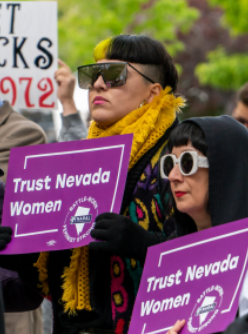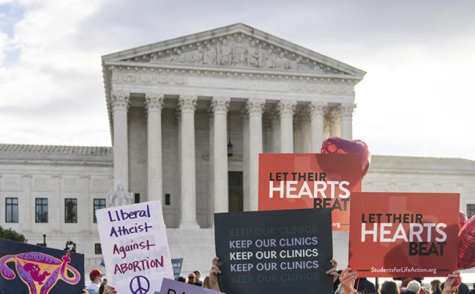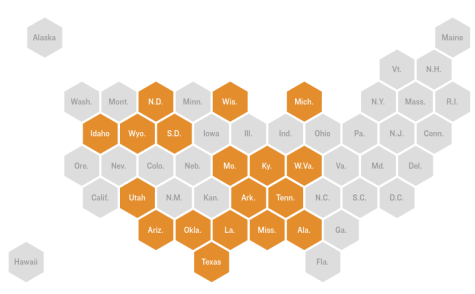Will Roe V. Wade Be Overturned?

Protesters in Nevada
May 6, 2022
On May 2nd, a draft of a Supreme Court decision was leaked to the public for the first time in U.S. history. The draft, written by Justice Samuel Alito, confirmed the majority opinion of the Supreme Court was in support of overturning Roe V Wade – a landmark law that has protected Americans’ right to abortion for half of a century.
The release of this draft came as a shock to many, and peoples opinions have been circulating social media. Despite the widespread panic, within hours of the leak, Governor Sisolak and Attorney General Aaron Ford made a statement to make Nevada’s stance on the issue clear.
“Voters in Nevada are guaranteed a right to a legal abortion until 24 weeks of pregnancy,” Ford told the press on Tuesday. “Let me be crystal clear to any Nevadan who is listening to this message: If you need reproductive health services, make that appointment with your doctor. We will protect your right to make decisions with your doctor about what is best for your health, your family and your future.”

On a national level, however, Roe V. Wade being overturned could drastically change people’s lives. Roe V. Wade instated abortion as an inalienable right due to the people’s right to privacy, and the decision served as a safety net for women in states with increasingly anti-abortion legislation. Since the leak, protests have erupted all over the country.
It’s unknown whether the released draft has been changed since it was leaked, but according to the current document, if the decision goes through, any state could ban abortion in its entirety. Although Nevada is not one of the states at risk of this, almost half of America is.
This is because of previous laws set in place, called “trigger laws” that would make abortion illegal almost immediately after Roe. V. Wade is overturned.

“More than 20 states have laws that could restrict or ban abortion soon after the Supreme Court overturns Roe, according to Guttmacher. One type of statute, called a “trigger law,” is designed to take effect after a Supreme Court ruling. Some states also still have pre-Roe abortion bans on the books that haven’t been enforced. Other laws express the intent of states to crack down on abortion if permitted by the Supreme Court,” explains npr.org.
As of right now, nothing is official, and no laws have been changed, however, the Supreme Court hasn’t issued any statements denying the claims made in the leak. In the coming days, more information will be released, and by staying alert and informed Americans can stay up to date on what’s happening with Roe V. Wade.







